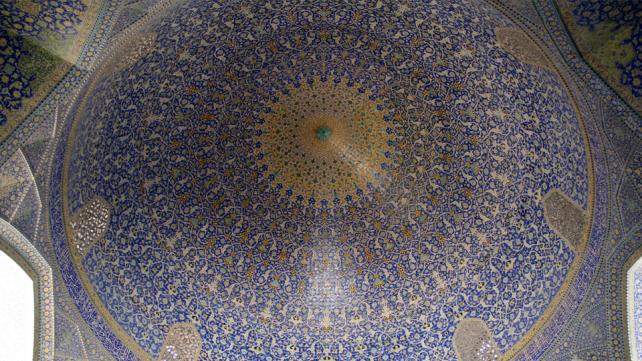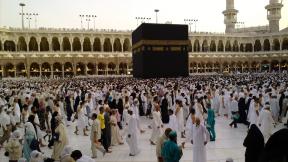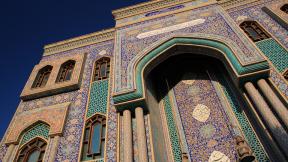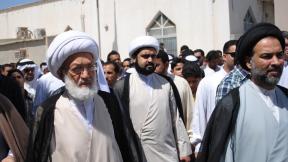
Shia-Sunni violence has been on the rise in the last few years, particularly in Iraq and Pakistan. Every month, it seems, scores of Shias and Sunnis are killed in a vicious tit-for-tat between extremists on both sides. Many of the victims are killed as they pray or are in mosques.
These incidents belie the reality of Shia-Sunni coexistence and cooperation. In Iraq, it is estimated that up to 30 percent of marriages are between Shias and Sunnis; victims of violence between the two groups frequently attend each other's funeral prayers; one group often helps the other's victims after an incident.
This silent majority must come together through dialog to defeat the terrorists who have been responsible for these killings.
Seven reasons why a dialog between Shia and Sunni is needed:
- Theological differences between Shia and Sunni are old and are better left for God to judge, as He knows best and has said in the Quran that He is the final judge of religious disagreements. The killing of Shias or Sunnis will not resolve these disputes.
- The principle of "no compulsion in matters of faith" (Quran 2:256) is not just limited to Muslim-non-Muslim relations. It applies to Muslim interpretations of Islam as well. This instruction of God serves as a guideline for the Muslim community to not impose one's interpretation on others. That is why throughout history, not only have Hanafis and Shafis worked with each other despite differences, but Shias and Sunnis have lived and worked side by side with each other as well.
- When human beings sit down and talk to each other, they learn to respect each other.
- Dialog allows parties to understand each other better by allowing participants to acquire direct knowledge about beliefs instead of relying on propaganda and stereotypical images. (Quran 49:6-12)
- Dialog will isolate the extremist fringe. It is a major sin to kill a human being. Killing a human being is like killing the whole of humanity. By talking to each other, Shias and Sunnis will be able to save lives, which is like saving the whole of humanity. (Quran 5:32)
- Revenge is not justice. Killing in revenge is unjust, inhuman, and un-Islamic. Retribution through the state, which the Quran sanctions via capital punishment does not amount to individuals taking the law in their hands or killing an innocent person in revenge. The call for, "an eye for an eye," does not mean an innocent eye for an innocent eye.
- Even if some Shias and Sunnis consider each other enemies, the Quran asks us to be just even toward one's enemy "O you who believe! Stand out firmly for God, as witnesses to fair dealing, and let not the hatred of others to you make you swerve to wrong and depart from justice. Be just: that is next to Piety: and fear Allah. For Allah is well-acquainted with all that you do." [Quran 5:8]
Some considerations for dialog:
The Shia community like Sunnis is diverse. There are many differences between one Shia group and another. This is why it is important that dialog between Sunnis and Shias becomes a movement and a process throughout society instead of everyone waiting for one high powered dialog to yield some results at the leadership level. Here are some preliminary thoughts on how a dialog between Shias and Sunnis can be beneficial for each side.
Goals of dialog
Although I consider dialog a process that is beneficial to all, it is necessary that everyone involved recognize some of its tangible benefits. The following are a set of achievable goals for Shia-Sunni dialog.
- Developing an agenda of common concerns
- Identifying issues of conflict
- Issuing joint Fatwas against the killings
- Isolating extremists on each side
- Preventing a potential conflict or mediating an existing conflict
- Education to clarify stereotypes about each other
- Setting up joint task forces to deal with outstanding issues
Who should participate in the dialog
- Imams and caretakers of Masjids
- Students of Madrassas
- University students
- National level religious leadership
- Shia and Sunni media persons
- Shia and Sunni businesspersons
Mechanism of dialog
Dialog is a process that should occur at all levels of society. In the 1960s in Pakistan, when Shia- Sunni fights were far less significant, city officers used to convene joint meetings of Shia and Sunni leaders to chalk out Muharram plans so no confusion would result in rioting. These government-arranged dialogs helped keep conflicts at a minimum. Considering the current level of mistrust, it will be beneficial if civil society takes initiatives for dialog at all levels of society.
- Private Dialog: Host roundtable discussions initially at the top leadership level that should later expand to include
- thers working on different committees.
- Public Dialog: Shia and Sunni both use public forums and media to speak to each other's audiences
- Visiting each other's Masjids to enhance confidence and to demonstrate that they are not supportive of the extremists who isolate each other.
- Shia-Sunni Dinners: Masjids and social associations should invite Shia and Sunni friends to eat with each other publicly.
Publicity of dialog
Publicity of the dialog will generate hope and confidence in it and will empower those in dialog vis-a-vis the extremists.
- Media should facilitate self-criticism and introspection by the religious leadership
- Those leaders who participate in dialog should be recognized through interviews, reports, and documentaries
- Investigative reports should be aired and published about the truth behind sectarian propaganda
- It is important for society to honor those Shia and Sunni leaders who take initiative and demonstrate leadership in participating in dialog. Sunnis, being members of the majority community, have the higher level of responsibility towards initiating and participating in dialog
Sponsors of Dialog
Funding always facilitates the beginning of a process in civil society. Every task requires time and money. While participating organizations and individuals can take care of their own costs, it would be very rewarding if some individuals and businesses came forward with funds to sponsor and host these dialogs. American Muslims can start a dialog in North America where there is no conflict in the Shia-Sunni community and then inspire and sponsor dialogs where it is needed the most.
Beyond Dialog
Considering that Shias and Sunnis live side by side in the Muslim world, they are not unknown to each other, and considering that most of them have nothing to do with the current extremism which is responsible for the killings and violence, it is important for the moderate majority to come up with a few initiatives which are beneficial for Shia- Sunni harmony. These could be communicated in the print form or in any other media. They should discuss the following themes and/or use the methods outlined here:
- Khutba points which can help harmony
- What type of talk can hurt at personal level
- What is common between Shias and Sunnis
- Common Hadith between Shias and Sunnis
- What is hate speech
- Islamic teachings of tolerance
- A Shia-Sunni security force, jointly safeguarding each other?s houses of worship will be a significant blow to the extremist agenda.
Conclusion
Shia-Sunni conflict and sectarian terrorism is tearing our community apart.
The Quran, the Prophet Muhammad, peace and blessings be upon him, the Kaba and the five pillars of Islam are common to Shias and Sunnis. That is why no one in Islamic history has stopped Shias from performing Hajj, although the Kaba has always been in the control of Sunnis. Even today, when those currently in charge of the Kaba are part of a predominantly Salafi establishment, which maintains extremely negative views of Shias, Shias like other Muslims are free to perform Hajj. Shias, by the same token, since the 1979 Iranian revolution, are ordered by Imam Khomeini to pray behind these same Salafi imams instead of praying separately.
This mutual recognition gives us hope that a dialog can bear fruit of peace and harmony between both the communities.
If you are an imam/khateeb, please sign and fax or email the attached resolution which was adopted by the Dialogue held on Dec. 25, 2006 in Chicago.
If you are not an imam, get your masjid and imam to sign and then fax or email the attached resolution.
Photo Attribution: Patrickringgenberg - http://commons.wikimedia.org/wiki/File:Isfahan_Royal_Mosque_cupola.JPG







Comments
asalaam aleykumi believe and every one of Islamic faith do the same; That WE HAVE BEEN CREATED TO... A abudu Llah...then if i may ask what is this...aabud Lllah ?
Location
As Salam o AlaekumThe differences between Shia and Sunni beliefs are scathing and harsh but the common beliefs are far more numerous.Even if there was nothing common between us, it is no reason to hold a grudge or foster bitterness.The Quran requires Muslims to exercise courtesy with all human beings - Muslim and non-Muslim [2:83] and it has high praise for peace-makers.Let us shed our prejudices and extend our hand in friendship to all men and women - especially Muslims.Shias and Sunnis are brothers in faith. Let us not abandon our brothers and sisters just because our beliefs are different in some details. Let us concentrate on what is common between us and there is indeed a lot - belief inn one God, belief in the Holy Prophet, belief in the Quran, belief in the Day of Judgment.We will all face our Maker on the Day of Judgment and we will be taken to task for harboring bitterness for all human beings, especially Muslims.
Location
As Salam o AlaekumBeautiful article but is it enough ?I would like to know what Shias and Sunnis have done to progress their dialog since this article was written.There does not seem to be any significant change in the Shia-Sunn relationship.The love-hate relationship between the two groups does not appear to have changed. Clearly, we need to do a lot more to achieve unity among Muslims.
Location
SalamsJazakallah Brother for initiating this important issue.Ayatullah Khamenei , the leader of muslims have clearly stated , Its not allowed to curse or launch insults at personlaties considered respectable by our Sunni brothers and sisters. Imam Khomeni has said..Any one who creates fitna between sunnis and shias is neither sunni nor shia but an enemy of both.yes there are differences in some issues. But its time we , only see our enemy ...i.e. Shaitan and Nafs.Its time we restore our Honor as muslims and Identify elements that cause discord and sow seeds of hatred in the community.We need to discourage anybody who tries to declare the other school of thought as "infidel". My sunni brothers , my shia brothers..lets stop the hate spreaders...
Location
I am apalled by the lack of knowledge,readers are expressing in this thread.Please read (late)Maulana Manzoor Naumani's book"Irani Inqilab,Imam Khomeini aur Shiaeat".The preface to this book is written by Late Ali Mian Nadvi.The problem with Shias is that they hide their faith(not like Hindus,Christians etc).Even if you consider them Muslims,they don't regard to be Muslim.Khomeini says in his book that no sooner our Prophet(SAW)passed away,all Sahabas becamce Munafiq except three(indirectly accusing our Prophet(SAW) that his choice was faulty(Naoozbillah).There is too much filth about Khulafa Rashdin and Ummahat as well.We should rather put all our efforts to remove the veil from their faces for emancipation of Islam.If there is a quarrel or fight between a Sunni and Hindu/Christians,they support Hindu,Christians .Ask people in India/Pakistan.I regret that my post seems to be in bad taste,but it was necessary to call spade a spade.Abbasi
Location
aslaaamu alaykum, brothers and sisters in islam we are in a society where disputes have become ignored, the muslim youths and the upcoming generations are ignoring disputes and moving on with life as accepting both sunni and shia as muslims. mahmoud shaltout of the alazhar school in egypt has made a fatwa indicating that shia muslims are indeed muslims and that both sunni and shia are able to marry one another. yet you have a small portion of muslims from both sunni and shia sects who go against unity or even dialogue because of thier extremeist beliefs and extremist teachings, this small percentage of so called muslims are effecting the muslim society and are causing hatred with in the muslim society. however there a positive outlook on this and that is that this is a very small percentage that are doing this. the solution to this problem is for both sunni and shia to study eachothers beliefs, differences and similarities. once one gains knowledge of that they are able to respect one another or atleast tolerate one another. is it possible to tolerate one who believs that jesus is the son of god (astekhferallah) yet not tolerate our muslim brother and sisters who have more similarities then differences? indeed that is rediculous, for one to ignore this small fact and act according to it is a sign of ignorance. so studying and dialogue is important and we must approach with an opened mind. unity does not mean that we must compromise each others beliefs but to respect or atleast tolerate eachothers beliefs. may allah (swt) grant us unity. wa salaaam
Location
Jazakum Allah khairan!
Location
Dear Muslim Brothers and Sisters, Assalamoalaikum wrwb,Alhamdolillah, this is a time of re-awakening of Islam after a long period of ruthless subjugation under the Christains (mainly in the form of British colonization of the middle east and the subcontinent). One of the strategic tool used by the British in breaking the Khilafat e Uthmaniya was to instigate hatred amongst the different tribes and clans of the muslims. This, to their surprise, was the easiest way to self-annihilate and weaken the the muslim empire from within. They were successful in getting rid of the Turks from Hejaz and in the process, became heroes in front of the Arabs. To this day, they are the chosen ones, once it comes to offering business opportinities and other deals. It should be fresh in your memory how Iraq, being a power to reckon with in the Middle East, was weakened by creating hatred within the Shias and the Muslims, and once the ground was ready, it was just a matter of landing the forces to occupy the land. The same has been tried in Pakistan, where ruthless attacks on masjids and Imamias were organized to create a sense of hatred within the two communities. Once this did not work (as the Shia population is comparatively small and didn't have much voice), a new dangerious game was started where the tombs of saints, reverred by a large population, were attacked to create a bigger rift in the society. The people, with all the mass media around, were able to see the connections and could see who is behind this trend of terrorism. Several CIA agents were arrested and thrown out of the country and the fight goes on.The message is simple. Try and understand the current situation in light of the historical events and you will understand the situation much better. You will be in a better position to make a guided decision. Wassalamoalaikum.
Location
Unity of Muslims is a directive by GOD any Muslim who violets it should be ready to face the consequece.
Location
this will make a clear different between the truth and the false
Location
Pages
Add new comment